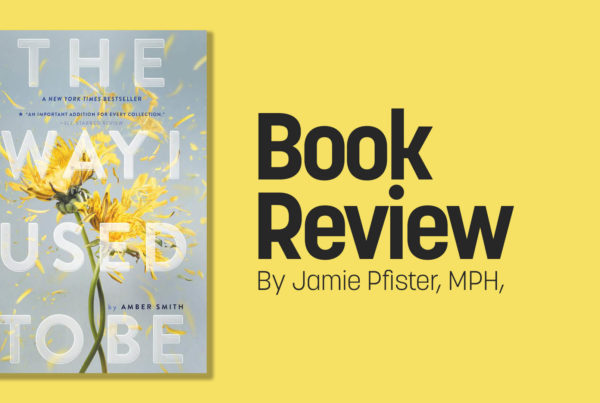The writer Francis Hennesey (“The Skill of Mindful Listening,” Psych Central, 10/8/2018) writes that he believes the reason many people gravitate to psychotherapy and life coaching is the assurance that they will have direct contact with a focused, engaged and unbiased good listener for a designated period of time, usually 45 minutes. We crave optimal engagement with “digital detachment.” We like to speak with someone who is not constantly checking their phone or texting.
Mindful listening, also known as active listening, includes a listener whose nonverbal facial and body communications are an integral component of the verbal communication process. Hennesey further states that good listening skills encompass engaging all our senses along with being patient and nonreactive — in other words, being totally in the moment.
Good listeners make us feel validated; that our thoughts and feelings are real and important.
Silence is Golden
A critical component of mindful listening is the appreciation and incorporation of silence into our conversations and into our lives. Many people are extremely uncomfortable with any period of silence in a conversation, no matter how small, and feel a rush to fill the perceived void – often with meaningless words. Silence can fill our imaginations with anxiety-provoking thoughts. Most of us are quiet in a conversation only as a way of polite waiting until it is our turn to speak, and sometimes we worry that we will forget what we are planning to say when we get our chance to speak. If you are concerned about this, jot down some brief notes as a “tickler” for when it finally is your turn. Silent reflection also can promote what is called, in medicine, as “a tincture of time.” If you, the listener, resist the urge to just verbally leap into action at the very first moment that a problem arises, you may find that sometimes a problem can fix itself – and the wisest action is not to take any action at all (Dr. Alex Lickerman, “The Undefeated Mind: On the Science of Constructing an Indestructible Self”, Psychology Today, 7/21/13).
Silence has been found to stimulate brain growth and that a minimum of two hours of daily silence can actually stimulate the creation of new brain cells in the area of our brains linked to learning and recall. It also appears that silence is more relaxing for our bodies and brains than listening to music as measured by lower blood pressure readings and increased blood flow to the brain. Periods of quiet during the day also appear to contribute to a better night’s sleep and reduce insomnia. The World Health Organization has called noise pollution a “modern plague” and sees noise as a contributor to heart disease and tinnitus.
How to be an Active Listener
Listening is a complicated skill. It requires the listener to understand, interpret and evaluate what is said. It is important not to confuse hearing with listening. It is critical to learn to focus with empathy on what the other person is saying. We don’t have to accept the other’s opinion but we do have to remain objective and non-judgmental.
Jeffrey Berman on YouTube gives some helpful hints to use in active listening. Good eye contact is on the list, as is the incredible importance of our non-verbal behaviors to show our interest in what the other is saying. Avoid distracting actions and, above all, don’t interrupt. Keep your own emotions in check which entails confronting our own biases and prejudices.
Most parents would like to have more communications with their children, but it seems something mystifying occurs when children morph into teenagers. They stop communicating with adults. If you ask an adolescent how his day went, don’t expect much of a reply. Try asking open-ending questions that might be of interest to them. For example ask about the antics of other kids. Who got detention? Did you zone out today? Light conversation can often open the door to more serious issues.
Mindful listening specialists suggest that we should not judge what appears to be a negative person too quickly but, through good listening skills, we try to discern what motivates negative folk and to understand their fears. Other suggestions are:
- Try not to interrupt the speaker. If you slip, apologize and get back on track.
- Do not ever finish another’s sentences for them. This is a bad habit which will be infuriating to the speaker as well as a turn off to the speaker to continue.
- Good listening includes confirming respectfully to the speaker that you have heard her. This can be especially frustrating if we disagree with what the speaker is saying – harder yet if the speaker’s views trigger off a negative emotional response in us.
- Body language is a vital part of mindful listening. Suggestions such as leaning forward but not crossing one’s arms or legs are important, as is the right amount of eye contact – not too much or too little.
- Eye contact should be on a level plane with both parties. I recall reading that if you find yourself in a room with an IRS auditor, to remember that the auditor is there to be in charge and will do things opposite to friendly communication like sitting in a higher chair.
- Personal space is an important component in good listening skills. Americans, generally, like to keep physical distance between ourselves and others, especially if we don’t know them.
- Another essential ingredient is that the good listener needs to remain calm especially if the topic may be emotionally charged. Give the speaker pauses to think and speak.
How Adults Can Listen to Children More Effectively
In their publication Mental Health First Aid USA (2016), The National Council for Behavioral Health offers hints for adults on more effective listening to kids:
- Listen non-judgmentally.
- Make young people feel they can talk about their problems without being judged.
- Be genuine.
- Be comfortable with silence.
- Find the right setting.
- Do not compare the young person’s life with your own experiences from that age.
- Do not trivialize the young person’s experiences.
- Do not ask the young person to justify or explain their behavior.
- Watch your body language.
- Avoid giving unhelpful advice.
Listening Benefits Everyone in the Conversation
We should all take a moment to determine what kind of a listener we are. Psychology Today offers an assessment that can be done in less than 15 minutes just between ourselves and our computers. Go to Psychology Today (2018) and take the quiz. It is pretty easy to discern where you stand on the listening scale just by thinking about the questions as you answer them.
When we train our minds and our mouths to be still, it is amazing what we are capable of learning from others and the world around us.
“When I ask you to listen to me and you start giving me advice,
You have not done what I asked,
When I ask you to listen to me and you begin to tell me why I shouldn’t feel that way,
You are trampling on my feelings.
God just listens and lets you work it out for yourself.”
— “Please Listen,” author unknown
———-






